Novera eager to shed ‘Rickshaw Girl’ moniker
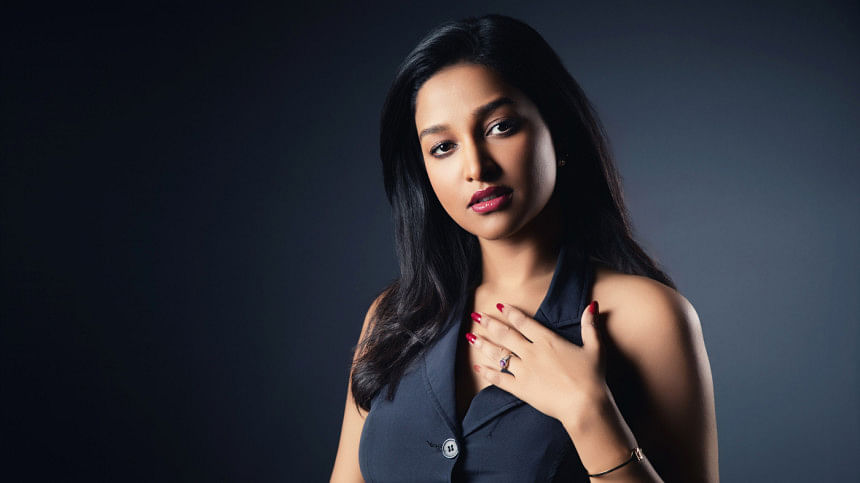
You may know Novera Rahman as the "Rickshaw Girl", the titular character of the Amitabh Reza Chowdhury directorial, but she is more than that. She is a painter, an actress, and a producer who yearns to play rebellious characters on-screen. Although the award-winning film was finished years ago and was initially set to release in 2020, the global pandemic delayed its premiere in the country. It was finally released in Bangladeshi halls yesterday.
"Rickshaw Girl" was originally made to cater to international audiences—so the characters had to speak in English, which came pretty easily for Novera.
"I was raised in Dhaka, so I can speak all kinds of Bangla—from posh to street," said the actress, who had dropped by for an interview with The Daily Star. "The challenge, however, was toning down my American accent. Having spent some time in America, the difficulty arose when I had to speak English throughout the film in a way that felt natural to native English speakers while also making it sound like English spoken by a Bangladeshi."
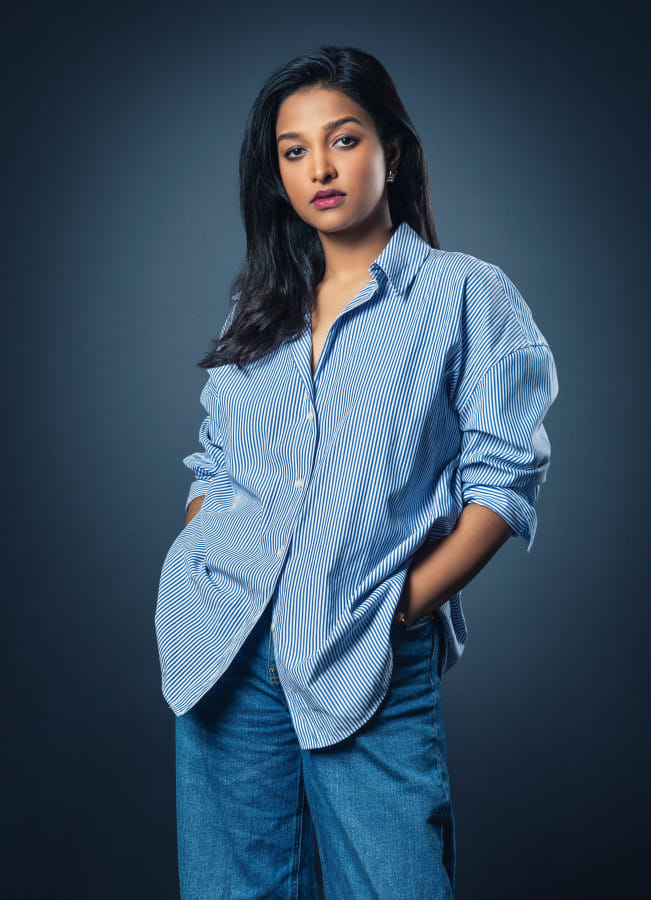
To achieve this, Novera listened to 1970s footage to capture the unique Bangladeshi accent of that time, which isn't fully British or American. "I further added a hint of street lingo to it, as well."
It's rare to catch a glimpse of female rickshaw pullers in the streets of Dhaka, and so when we asked Novera whether she could refer to one while shooting. She shared the inspiring story of Shimu apa, a female rickshaw puller who lives on her own.
"Believe it or not, there are female rickshaw pullers in Dhaka, particularly on the outskirts of the city. I spent a day with Shimu apa, following her through her daily routine and strolling around her neighbourhood as though she owned it. Watching her confidently navigate her world really inspired me and gave me the strength to play Naima," revealed the artiste.
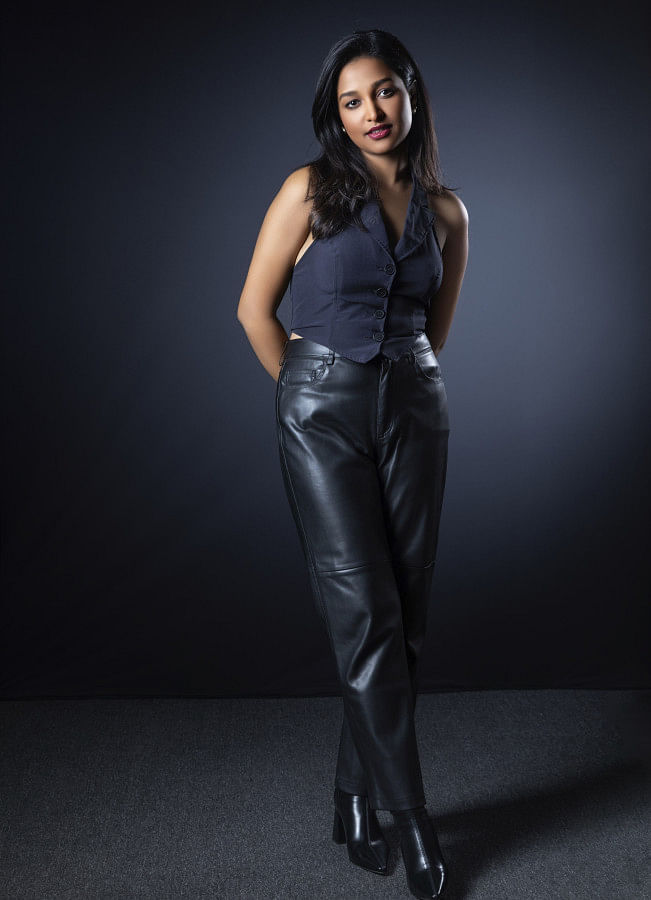
Novera deeply immersed herself in her character by studying the history of rickshaws and Bangladeshi folk art. She explored the ties between folk art, cinema posters, and rickshaws, uncovering how rickshaws once served as mobile billboards for film advertisements. For "Rickshaw Girl", she worked with Solaiman Hossain, one of the most well-known rickshaw artists in Bangladesh.
When you put so much effort and time into a project, it's only natural to feel disheartened when your work gets replicated for a television drama. Novera faced the same sentiment when a project, also titled "Rickshaw Girl", was featured on television, starring Tanjin Tisha.
"A few years ago, I woke up to a message from someone who sent me a newspaper interview. It featured Tanjin Tisha as the 'Rickshaw Girl'. At first, I thought it was a mistake—maybe they had printed an irrecognisable photo of me. However, it turned out to be Tanjin Tisha in 'brownface', intentionally exhibiting a 'darker' complexion through makeup, portraying a character in what turned out to be a TV ripoff of my film. They even copied the exact colour and style of my costume for it!" exclaimed Novera.
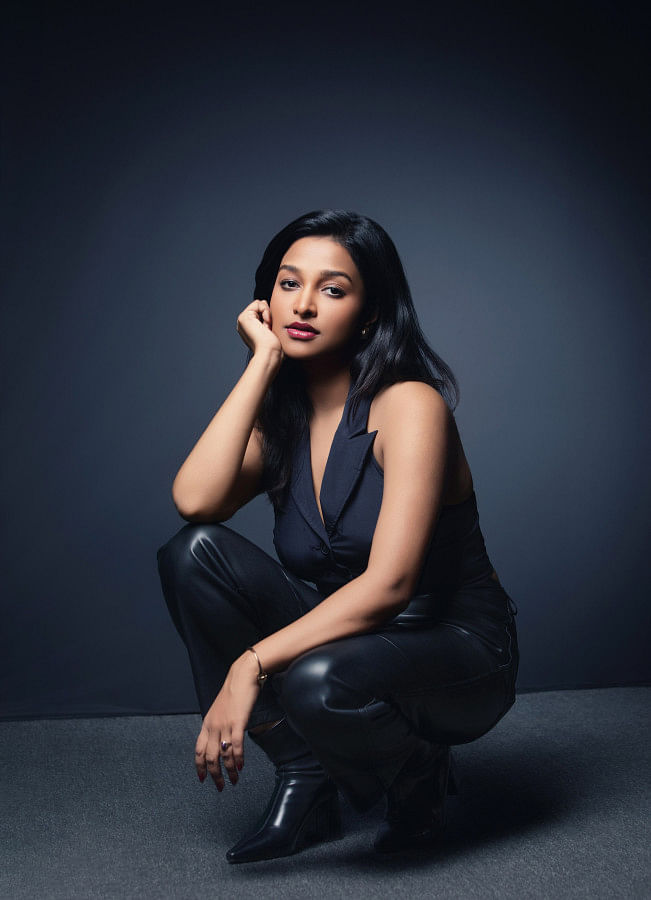
"It felt like someone had not only done 'brownface' to represent me but also stolen my artwork before it could reach its audience. It broke my heart. Unfortunately, I don't think Bangladesh has strong copyright laws to protect artistes and creators. It seems anyone can take someone's idea, replicate it, and move forward without facing any consequences," added the artiste.
Many female-oriented films have been produced in recent times, but while they receive critical acclaim, they often lack commercial success.
"I think this happens because the characters aren't complex enough—audiences enjoy watching layered, multidimensional characters, regardless of gender. These films often focus heavily on struggles but fail to include enough entertainment value to draw in viewers. I believe this will improve as more female screenwriters and directors emerge to share stories from our own perspectives," she asserted.
The release of "Rickshaw Girl" in Bangladesh marks the end of an era for young Novera Rahman after being called that for the better part of a decade. "It's a relief, a huge one, for me. I am now ready to move on to better things. Here's to hoping!"

 For all latest news, follow The Daily Star's Google News channel.
For all latest news, follow The Daily Star's Google News channel. 



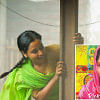
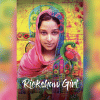



Comments